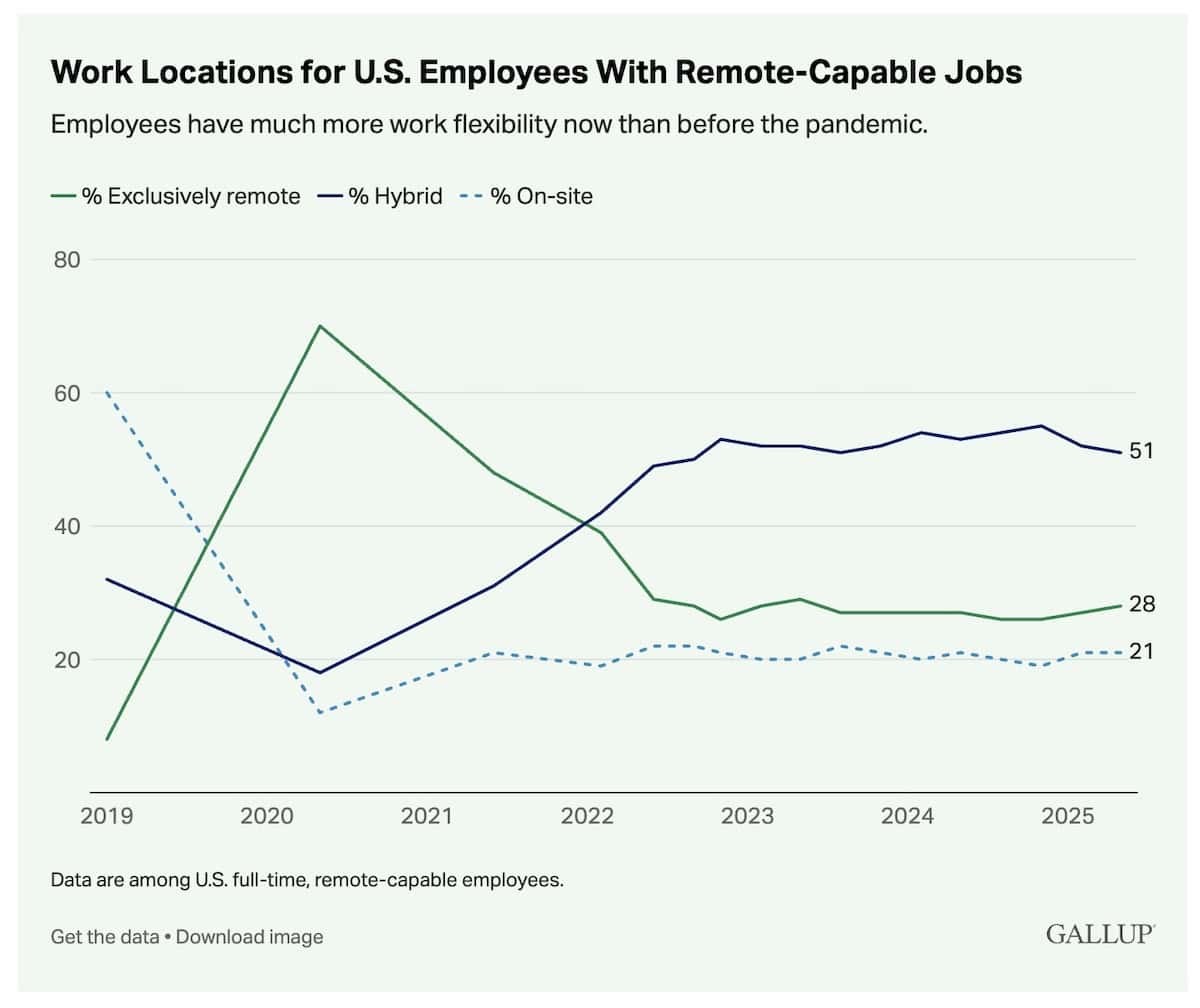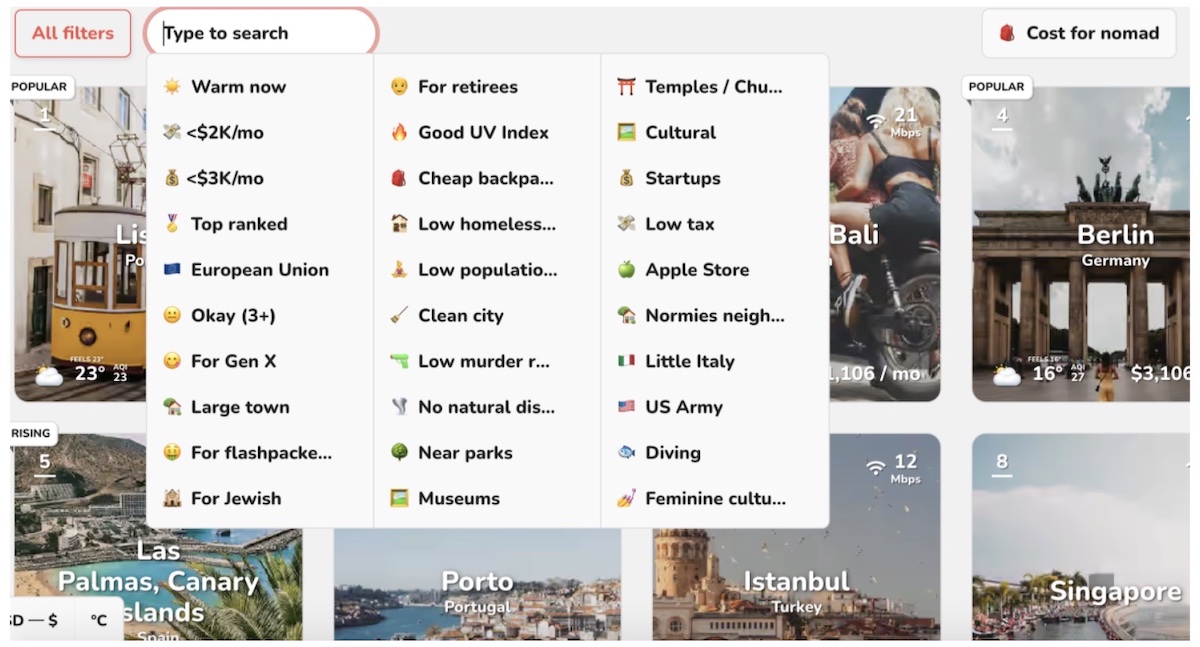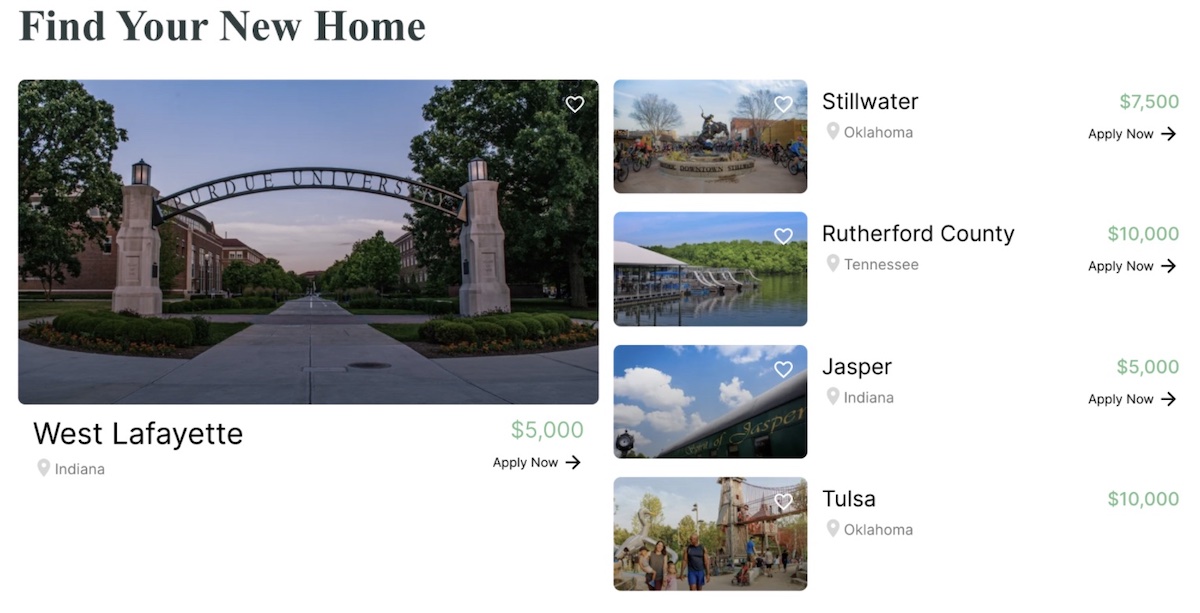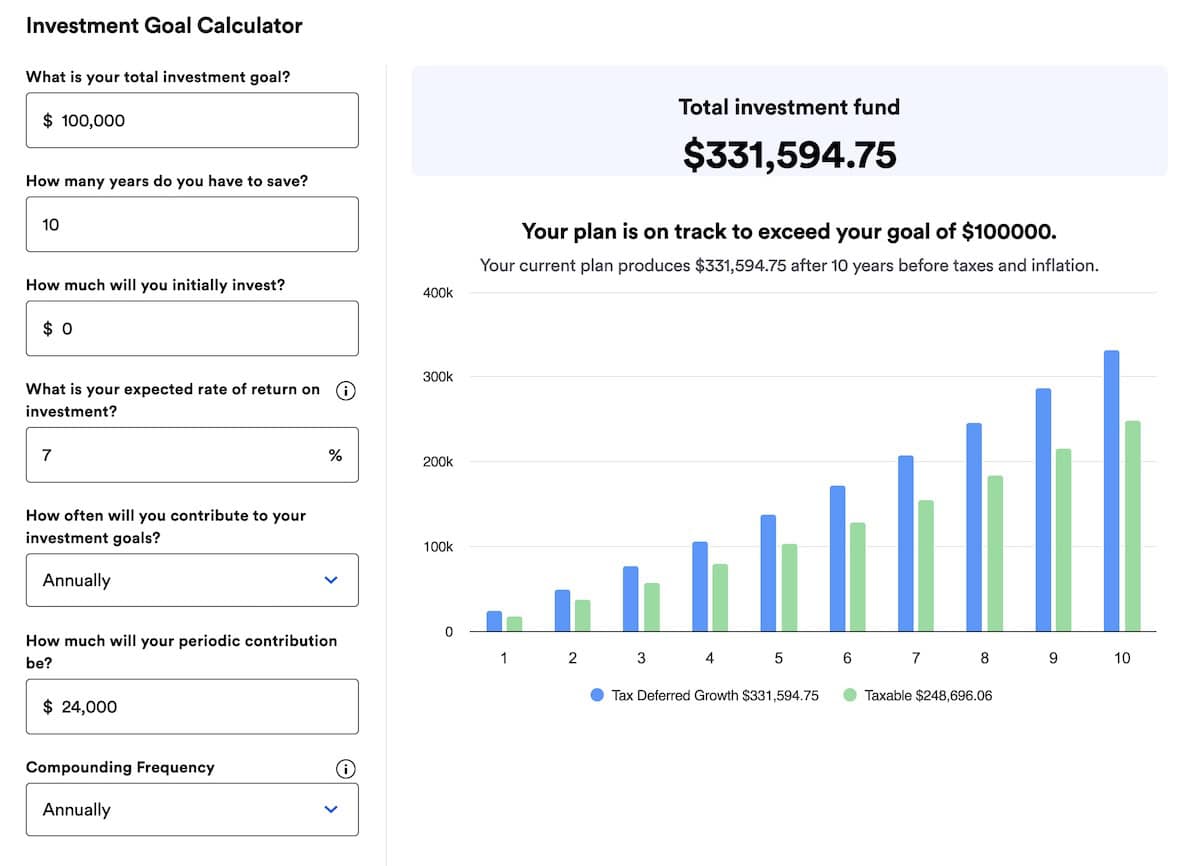
The Ultimate Guide to Geoarbitrage: Work Where You Want, Save More Money, Semi-Retire & Travel the World
By: Nick Callos
Skip to Section
Article Summary
Geoarbitrage is your ticket to retiring earlier, saving more, and living better—by earning big-city income while living somewhere with a lower cost of living.
This guide covers everything you need to know to pull it off, from how to generate remote income, choose the right location, and handle practical details like visas and insurance. Whether you want to move internationally or just across state lines, geoarbitrage gives you the flexibility to live life on your terms without draining your bank account.
- Geoarbitrage means living somewhere cheaper while keeping your current income, allowing you to save and invest more.
- Both international and domestic moves count—think San Francisco to Mexico City, or New York to North Carolina.
- Remote income, good research, and careful planning are key to a smooth move and long-term success.
- Popular destinations include Lisbon, Taipei, Medellín, Cape Town, and Prague—plus U.S. cities like Huntsville and Cincinnati.
- With enough savings and smart investing, geoarbitrage can fast-track your path to financial independence and early retirement.
Want to retire early and travel the world? Then embrace the art of geoarbitrage!
In this guide, we’ll teach you all you need to know about geographic arbitrage. By the time you finish reading, you’ll be prepared to live in your dream destination while working and saving money.
What is Geoarbitrage?
Geoarbitrage may sound like a fancy financial term. But the idea is simple: Geoarbitrage is moving to a place with a lower cost of living while maintaining or increasing your income, which could come from full-time work, self-employment, investments, or whatever else brings home the dollar bills.
Coined by Tim Ferriss, the author of the 4-Hour Workweek, geoarbitrage is an embrace of life, travel, freedom, and living life on your own terms. That’s why geoarbitrage is also known as lifestyle arbitrage. While you still do have to work, unless you have money already, geoarbitrage enables you to make the most of your earnings and achieve FIRE and early retirement sooner.
Since the rise of remote working, a lot of folks aren’t tied to their location due to employment. This has made lifestyle arbitrage increasingly popular.
Using geoarbitrage, you can work for a company headquartered in one city and live in another city with a lower cost of living. For instance, if you have a net income of $75,000 in San Francisco, you could boost your monthly savings from $300 to $2,300 per month just by moving to Mexico City to live and work.
Yes, you read that right.
Interested in geoarbitrage now?
In the rest of this guide, we’ll cover all everything about geoarbitrage, including:
- How to do geographic arbitrage
- The types of geoarbitrage
- How to achieve financial independence with geoarbitrage
- Best destinations for geoarbitrage
- Final considerations when doing geographic arbitrage
How to do Geoarbitrage
In simple terms, geoarbitrage is the act of relocating yourself to lower your cost of living, save money, and improve your lifestyle. Think moving from New York City to Chiang Mai, Thailand – while still making a New York City wage.
Also called geographic arbitrage, geoarbitrage has long been associated with self-employment and living abroad – a full dive into the digital nomad lifestyle. The rise of remote work during the COVID-19 pandemic has also made geoarbitrage possible for those with standard 9-5 jobs. Think working for a tech company in Seattle while living in the Bahamas. How sweet is that?

Gallup remote and hybrid work trends as of July 2025
No matter what job you have, if your employment is location-independent, you can try geoarbitrage. Here’s how to make geoarbitrage work for you:
Generate Location-Independent Income
- From investing to writing and blogging to full-time remote work, you have plenty of ways to make money from anywhere. If you don’t have location-independent income, read our articles on freelance work for inspiration.
- Have a full-time job with benefits that you like? Then consider asking your boss to work remotely. We have a whole guide on that.
Tip: Geoarbitrage works if you keep or increase your current level of income. That’s why we advise you don’t work locally unless the pay is good (that is – you want to make a big city wage while living in a small town).
Research Locations
Consider domestic or international locations, being sure to examine things like:
- Cost of living
- Taxes
- Internet speed
- Quality of healthcare and education (if you have kids)
- Air quality, safety, and political stability
- Languages and culture
- Recreational activities
- Food and entertainment
For a list of great destinations, check out some of our resources:
Tip: Only begin investigating locations after you’ve solidified your location-independent income. To help with your research, Nomad List is a particularly great site for comparing costs and finding destinations that suit your needs and preferences (the site has some great filters).

Check out all the filters Nomad List offers.
Plan Your Move
Here’s what your geoarbitrage checklist could look like:
Do I Have Sources of Income?
Calculate your expected income versus your expenses. Is it enough to live comfortably and save cash? If not, check out the Jobs and Careers Resources section of Frayed Passport. We have lots of information on working remotely for an employer or yourself, and you’ll discover ways to boost your income and benefit from geoarbitrage.
Am I Approved to Work Remotely from Anywhere?
If you have a full-time employer, communication is key. Get confirmation first that it’s okay to work remotely from another country. We have a whole blog post on how to ask your boss to work remotely if you need guidance.
Do I Have the Right Visa?
Many countries offer lengthy tourist and business visas, but you’ll need something more formal if you plan to stay longer in one place. Our Digital Nomad Visas article highlights all the countries that offer remote work visas. You can also obtain residency in some countries. For instance, Mexico offers a Temporary Residence Visa for foreign nationals wishing to stay six months to four years.
Do I Have My Finances in Order?
You don’t move abroad without some sort of financial cushion. Have savings in place in case of an emergency. Our Budget Guide for Digital Nomads offers lots of tips to help you manage your money. You should also have investments working for you. That’s how you make the most of geoarbitrage. Read our article on the best investments for semi-retirement.
Do I Have Health and Accident Insurance?
A health issue or accident while living abroad can derail your geoarbitrage lifestyle. Insurance firms like World Nomads offer affordable travel insurance that ensures you’re covered if the unexpected happens. If you have health insurance through an employer, see if any international clinics in your destination can serve you. If you’re living domestically, your health insurance should cover you in another state or province.
Do I Have a Place to Live?
Do your research beforehand on reputable sites, and read the fine print in any housing contracts. If you wish to physically see the homes first, stay at a hostel or hotel for a few days or weeks if needed. For information on how to find a place to live abroad, read out our Digital Nomad Housing Guide. From house-sitting to extended-stay hotels, there are countless options when it comes to finding a residence.
The Types of Geoarbitrage
When we talk about geographic arbitrage, we often talk about moving internationally. For US citizens, this may involve a move to a country like Costa Rica, Belize, Indonesia, or Croatia.
But geoarbitrage doesn’t have to involve an international move. Geoarbitrage is simply moving from one place to another place with a lower cost of living. If we categorize the types of geoarbitrage, there are two main types.
International Geoarbitrage
International geoarbitrage is moving from one country with a high cost of living to another country with a lower cost of living. Common examples include moving from England to Malaysia, the United States to Argentina, or Singapore to China.
For Americans, there are a lot of resources to figure out the best international geoarbitrage destinations. Travel and Leisure lists countries like Portugal, South Korea, and Ghana.
Domestic Geoarbitrage
Domestic geoarbitrage is moving from one location with a high cost of living to another location in the same country with a lower cost of living. If you live in the United States, it’s like moving from Southern California to Georgia. If you live in Australia, it’s like moving from Sydney to Cairns. If you live in India, it’s like moving from Mumbai to Chennai.
Domestic geoarbitrage has become increasingly popular. Within the United States, certain states and areas are offering incentives to attract remote workers. Make My Move is a site that tracks which cities and towns are paying remote workers to relocate. For example, Tulsa has offered a $10,000 incentive to folks to move there!

Look at those incentives to relocate!
How to Achieve Financial Independence with Geoarbitrage
Geoarbitrage can speed up your path to financial independence and the FIRE life. By lowering your cost of living and maintaining your income, you can save more. The earlier and more you save, the more opportunity that money has to grow through interest accumulation and investment gains.
The math is the math. There are plenty of stories and statistics to support the fact that geoarbitrage can boost your financial health.
For example, have a look at this report on people who were able to retire in their 30s and 40s – it found that early retirees accounted for 40% of those moving for retirement in 2021, and that they were 64% more likely to leave their home state than those retiring at 65+.
While lifestyle arbitrage isn’t for everyone, it’s not an extreme move, as the report would suggest. If you like new places and learning about new cultures, you’ll do well. Plus, your wallet will benefit.
To give you an example of how geoarbitrage can help you achieve financial independence, let’s return to the example from the beginning of this guide (the person moving from San Francisco to Mexico City). Here’s the breakdown of their finances.
- Lily works as a graphic designer for a company in San Francisco. She makes $75,000 net per year, but can only save $300 per month due to the cost of living.
- According to Numbeo data, an individual may need $5,500+ per month to live in San Francisco. A family of four may need more than $8,000 and potentially $10,000+ per month. Clearly, it’s hard to save money on a $75,000 income in San Francisco.
- Lily’s company has decided to adopt a remote work policy. She gets a digital nomad visa for Mexico and moves to Mexico City. After taxes, insurance, and living expenses, she can save at least $2,000+ per month.
- According to Nomad List data, an individual would need just over $1,700 to live in Mexico City. A family of four could live well for $2,500.
With geoarbitrage, Lily can put $24,000 more in her bank each year. Over a few years, that move to Mexico City will make her $50,000 – $75,000+ richer if she invests the money. Stay and work in Mexico for 10 years, and the results are eye-popping.

Investment Goal Calculator found on Bankrate
If planned and executed well, geoarbitrage can be your most powerful tool to achieve financial independence. You’ll have the freedom to live life on your terms sooner than you thought.
Best Geoarbitrage Destinations
The best geoarbitrage destinations are all affordable, especially when compared to the expensive cities of the world. However, there’s more to evaluate when choosing the best lifestyle arbitrage destinations, such as quality of life, access to healthcare, internet speed, and cultural activities.
Globally, some of the best geoarbitrage destinations include:
- Lisbon, Portugal: A rich culture, Mediterranean climate, affordable cost of living, and thriving tech ecosystem make Lisbon a great place to live, work, play, and save money.
- Taipei, Taiwan: Taipei may be slightly pricier than some other destinations, but the city’s world-class tech infrastructure, walkability, and open-minded people make it a great location for geoarbitrage (as long as you’re moving from a more expensive city like Toronto).
- Prague, Czechia: An expat favorite, Prague has charm, affordability, and fun. And with all the cafes, you’ll always have a nice setting to get work done.
- Cape Town, South Africa: Cape Town has it all, from rich history and great food to fast-paced outdoor activities and stunning nature. It’s also quite affordable.
- Medellín, Colombia: Pleasant weather, unique cultural sites, and exciting nightlife make Medellín a great place to be. You’ll also won’t spend too much each month.
For a larger list of the best geoarbitrage destinations, check out our list of the best digital nomad cities. Other locations worth considering include Ho Chi Minh City (Vietnam), Lima (Peru), and Budapest (Hungary).
Best Geoarbitrage Destinations in the United States
Are you looking for the best geoarbitrage destinations in the United States? Consider cities and towns with a high quality of life yet low cost of living, such as:
- Midland, Texas (no income taxes in Texas)
- Syracuse, New York
- Raleigh, North Carolina
- Cincinnati, Ohio
- Grand Rapids, Michigan
- Huntsville, Alabama
For a larger list, check out US News’ latest articles on the most affordable places to live in the United States.
Also, remember that nine states don’t have an income tax. Florida, Alaska, South Dakota, Texas, Nevada, Washington, and Wyoming don’t have any state income tax, while New Hampshire and Tennessee don’t tax earned wages. Not having to pay state taxes can boost your savings tremendously.
Final Considerations
So, are you ready to pack your bag and move?
Again, geoarbitrage isn’t for everyone, so make sure you’re fully committed before you put down a deposit and book your ticket. Sit down, crunch the numbers, and weigh the pros and cons. If the move makes financial sense and you’re mentally ready, go for it!
By engaging in geoarbitrage, you’ll be a part of a growing trend. Since the pandemic, most companies have embraced remote work. Most certainly, many employees are moving or will move to save money and enjoy life more.
Want to read more? Check out our guide for the 10 best semi-retirement jobs!
About the Author
Nick Callos has always had a passion for reading, writing, and discovering the new and unknown. Originally from Cincinnati, Ohio, Nick holds a Bachelor’s Degree in English from Boston College. He currently splits his time between his hometown, Chengdu, China, and the open road. A full-time travel writer, Nick hopes his work can inspire others to explore the world more deeply and enjoy the digital nomad lifestyle.Featured image via Unsplash
Information published on this website and across our networks can change over time. Stories and recommendations reflect the subjective opinions of our writers. You should consult multiple sources to ensure you have the most current, safe, and correct details for your own research and plans.
Frayed Passport is a participant in the Amazon Associates Program, an affiliate advertising program designed to provide a means for sites to earn advertising fees by advertising and linking to Amazon.com. We also may share links to other affiliates and sponsors in articles across our website.




